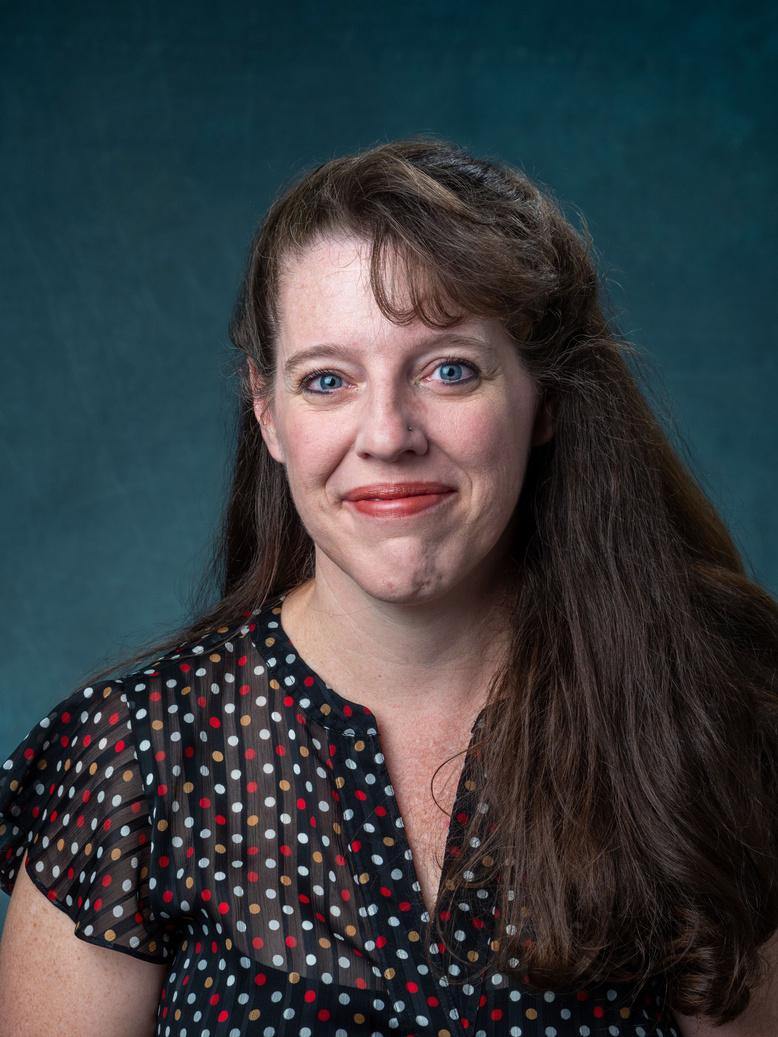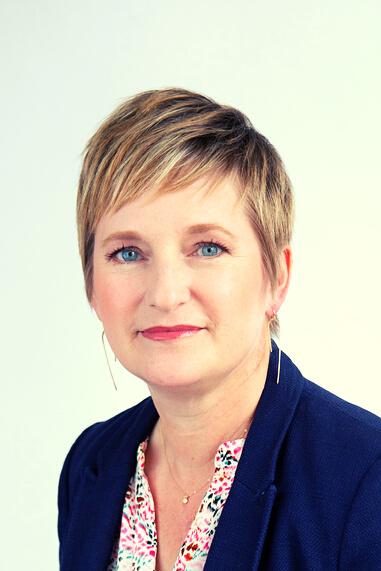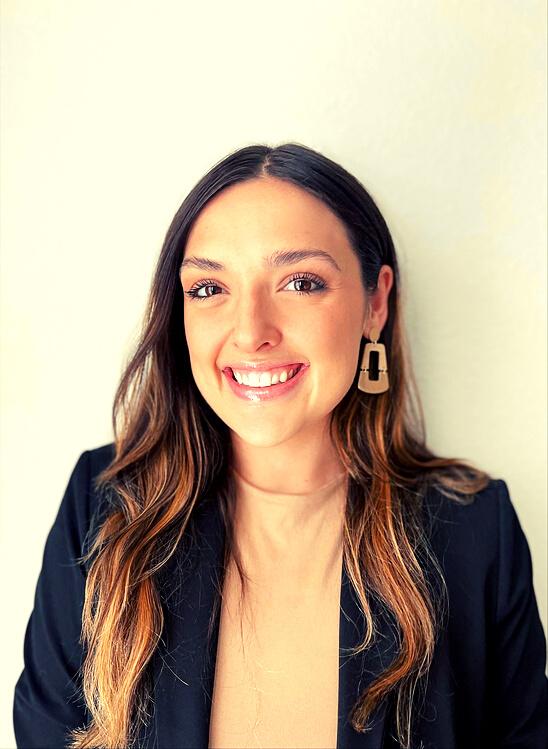




The Colorado Academy of Audiology is organized for the purpose of promoting the public good by fostering the growth, development, recognition, and status of the profession of Audiology and its members.

























Registration Open Meet Your CAA Board
Sawatch Hall Foyer
1:00 PM 5:30 PM
Exhibit Hall Open Meet Convention Sponsors! McCoy's Peak 1:30 PM 8:30 PM
Silent Auction Viewing & Bidding McCoy's Peak 1:30 PM 8:30 PM
SESSION 1
Mt Jackson
Promoting Positive Emotions, Thoughts and Mindsets in Tinnitus and Hyperacusis Patients Sarah Mathews, AuD 2:00 PM 3:00 PM
Visit Exhibit Hall in McCoys's Peak
SESSION 2
Mt. Jackson
OTC Devices Keynote: Democratizing Hearing Health (Tier I) Shilpi Banerjee, PhD 3:15 PM 5:15 PM
Poster Session 1 (up to 0 1 CEUs available) McCoy's Peak 5:30 PM 6:30 PM
Reception & Wine Pull McCoy's Peak 5:30 PM 8:30 PM
Registration Open - Meet Your CAA Board
Sawatch Hall Foyer 8:00 AM 5:00 PM
Breakfast McCoy's Peak 8:00 AM 9:00 AM
SESSION 3
Mt Jackson Tech Talk 8:30 AM 8:45 AM
Pediatric Vestibular Testing and Treatment Modifications
Karen Hendrick, AuD; Emily Nightengale, AuD; Whitney Lyle, AuD 8:45 AM 10:15 AM
BREAK
Exhibit Hall Open Meet Convention Sponsors! McCoy's Peak 8:00 AM 8:30 PM
Silent Auction Viewing & Bidding McCoy's Peak 8:00 AM 7:00 PM
Grouse Mountain Tech Talk 8:30 AM 8:45 AM
Internet Interventions for Hearing Loss, Tinnitus, and Balance Disorders Vinaya Manchiah, PhD 8:45 AM 10:15 AM
Visit Exhibit Hall in McCoys's Peak
SESSION 4
Grouse Mountain Equity Keynote: Wired for Bias Robert Franklin II, MA 10:30 AM 12:00 PM

McCoy's Peak 12:00 PM
Business Meeting & Legislative Update
CAA Board of Directors
Grouse Mountain 12:15 PM 1:00 PM
OTC/Licensure Commitee Forming Meeting
McCoy's Peak 1:00 PM 1:30 PM
SESSION 5
Mt Jackson Tech Talk
1:15 PM 1:30 PM
Healthy Hearing, Healthy Aging
Steve Huart, AuD
1:30 PM 2:30 PM
Aural Rehabilitation for Adults: Clinical Compliance

Dusty Jessen, AuD; Katie Lohr, BS 2:30 PM 3:30 PM
Grouse Mountain Tech Talk
1:15 PM 1:30 PM
It's What You Do with What You Hear: APD Assessment in Multiple Settings (Tier I)
Brittany Hensley, AuD, PhD; Tammy Fredrickson, PhD
1:30 PM 3:30 PM
Visit Exhibit Hall in McCoys's Peak Snacks avaiable in McCoy's Peak
SESSION 6
Mt Jackson
Fostering Future Audiologists: Working with Graduate Student Clinicians
Tammy Fredrickson, PhD
3:45 PM 4:45 PM
Services for Children who are Deaf or Hard of Hearing Under Age 5: CHIP/Part C to Preschool/Part B
Elaine McCarty, AuD; Kelly Doolittle, MA 4:45 PM 5:15 PM
Grouse Mountain
Five Star Reviews: How an Emphasis on Accessibility Delights Patients and Elevates Your Practice (Tier I)
Carol Clifford, AuD; Wynne Whyman, MA, MSS 3:45 PM 5:15 PM
Reception
McCoy's Peak 5:30 PM 8:30 PM
Poster Session 2 (up to 0.1 CEUs available) McCoy's Peak
5:30 PM 6:30 PM | Poster Awards at 7:30 PM
Silent Auction Winners announced McCoy's Peak 7:00 PM
Breakfast McCoy's Peak 8:00 AM 9:00 AM
Registration Open Meet Your CAA Board
Sawatch Hall Foyer
8:00 AM 12:00 PM
Exhibit Hall Open Meet Convention Sponsors!
McCoy's Peak
8:00 AM 12:00 PM
SESSION 7
Mt Jackson Tech Talk
8:30 AM 8:45 AM
Clinical Grand Rounds
Moderator Laura Schauer, AuD with Caleb Kronen, AuD; Emory Bratton, AuD; and Sierra Morrow, BS 8:45 9:45 AM
SESSION 8
Mt Jackson Tech Talk 10:00 AM 10:15 AM
Grouse Mountain
Otoscopy: Reveals More than Meets the Eye
Clark Walker, MD 8:30 AM 10:00 AM
Systematic Improvement Process in Infant Hearing Screening via the Virtual Site Project
Moderator Kristin Sommerfeldt, AuD with Arlene Stredler Brown, PhD; Hannah Glick, AuD, PhD; Jami Fries, BA; Ted Maynard, MD; Kelly Doolittle, MA; and Hannah Wilson, BA 10:15 11:15 AM
Human Trafficking in Colorado: Informing Colorado's Healthcare Practice
Kara Napolitano, MS 11:15 AM 12:15 PM





















In order to receive CEUs, this form must be completed for EACH presentation you attended.






We will start with a discussion and review of how the brain works with sensory inputs and the emotions that are tied to those inputs We will then apply this knowledge into specific tasks that can be given to tinnitus and hyperacusis patients to promote positive thoughts emotions and eventually a positive mindset This course will have some hands on experiences with these activities so that participants will have completed the activities themselves
Untreated hearing loss is a public health concern with only 35% of persons with hearing difficulty using hearing aids While there are numerous and complex reasons for non adoption of hearing aids, the FDA Reauthorization Act of 2017 attempts to address two of the most commonly cited reasons accessibility and affordability Since 2009, the debate over the issues has been appropriately vigorous what is the problem, how can it be solved, will patients be safe, etc
The FDA is now poised to revise and finalize regulations for all hearing aids In brief the regulations create a new class of over the counter [OTC] hearing aids that is available to adults with perceived mild to moderate hearing impairment without the involvement of a licensed person These devices include a mechanism for customization to the users’ needs though a hearing test is not required
As any audiologist can attest, success with hearing aids sits at the confluence of biology, psychology and engineering, making it both a science and an art The advent of OTC hearing aids presents both a threat and an opportunity This interactive session will explore evidence, frameworks and guidance on navigating the new reality of OTC hearing aids
Vestibular testing with children poses unique challenges compared to testing adults Additionally, the types of disorders that commonly affect adults differ from those that commonly affect children It is important for audiologists performing vestibular testing on children to understand how their systems differ from adults and how to accommodate all developmental levels for comprehensive, and reliable, results In this presentation, we will discuss four unique cases and the test modifications implemented for each child’s developmental level We will discuss why certain vestibular disorders that are common in adults are not often seen in children Lastly, we will discuss child centered intervention options and which were pursued for each unique case


Internet interventions have been around now for about 20 years although its use in clinical practice is limited Such interventions are particularly applicable to chronic health conditions to promote self management and help improve accessibility affordability and outcomes There is growing evidence to support the use of internet interventions for people with hearing loss tinnitus and balance disorders This talk will provide an introduction to internet interventions, discuss existing literature supporting its use and discuss the challenges and opportunities for its adoption in clinical practice

Much has been discussed in academic, media and personal discourse about the presence and impact of bias Individuals continue to struggle with the residual guilt and shame connected to sources and explanations of unconscious biases Wired for Bias is an interactive opportunity to explore the concepts of implicit biases and their impacts on work relationships communication and goals Through activity and conversation we'll make connections via our humanity through a lens of programming

A lot of healthcare providers treat old people Not a lot of them know much about hearing loss Even less appreciate the profound impact hearing loss can have on the physical, emotional and psychologic wellbeing of the aging patient At the Rocky Mountain Regional VA Medical Center, we hope to change that The Eastern Colorado Geriatric Research Education and Clinical Center (GRECC) is a VA geriatric center of excellence focused on aging One mission of GRECCs is to provide training and education on best practices in caring for older adults for students in healthcare disciplines This presentation will introduce how the RMR VA audiology department contributes to this mission Practices being developed in the GRECC can be applied in any interdisciplinary setting The framework for integrating audiology into an interdisciplinary practice is the Geriatric 5 Ms: Mind, Mobility, Medications, Multi Complexity, and Matters Most Comorbidities of hearing loss can be linked to each one of the 5 Ms Geriatrics healthcare professionals, like geriatricians and many others who have advanced training in the care of older adults, can play an essential role in diagnosing and managing hearing loss, but only if audiologists are part of their team This course will introduce information you can use to educate healthcare providers from other disciplines about hearing loss

Within the American Speech Language Hearing Association’s Scope of Practice in Audiology (ASHA 2018) the roles and responsibilities of audiologists are extensive They include advocating for the communication needs of all persons, as well as developing and implementing an aural rehabilitation plan of care in collaboration with the person receiving services, as well as their family/significant others and professionals (ASHA, 2018) Often, audiologists may not be fully aware of what aural rehabilitation entails; education, counseling, communication strategies, auditory training, and amplification are some of the few Despite the benefits of aural rehabilitation its implementation into clinical practice is limited; many hearing aid users are neither aware nor offered communication programs (Kochkin 2009) Shortfalls in communication can lead to social withdrawal and reduced quality of life (Monzani et al 2008; Hawkins et al , 2012) As of today, aural rehabilitation is highly accessible and can be delivered in various forms This presentation will delve into the value of aural rehabilitation within the adult population, the reasons behind the limited use of these programs through results from a survey via Google Forms, and future clinical directions to mitigate these barriers

Auditory processing is what we do with what we hear but how do audiologists best evaluate these concerns? How do audiologists create an evidence based test battery which will lead to appropriate referrals and rehabilitation options? This presentation will review two/three methods for evidence based protocols to evaluate APD across the lifespan: hospital based and private practice (university clinic)/ educational settings We will discuss considerations for testing, billing, and building a collaborative team for management of auditory processing disorder Information will be supplemented with case studies and polls, resources will be provided










Preceptors play a vital role in the future of audiology Only recently have our professional organizations begun to recognize the specialized knowledge and skills that preceptors must possess This presentation will discuss important issues in precepting including a brief introduction to current models of precepting, feedback vs evaluation, and tips and tools preceptors can use when working with AuD students
Each state has a unique set up for Early Intervention and Part C agencies for serving families with infants and toddlers who are deaf or hard of hearing The state of Colorado has a system within Colorado School for the Deaf and the Blind (CSDB) in collaboration with the Colorado Department of Human Services and the Colorado Department of Early Childhood There are regional Colorado Hearing Resource Coordinators (CO Hears) that help connect families with various resources and collaborate with a handful of community groups medical facilities and school districts to reach families throughout their journey in the EHDI system All newborns infant and toddlers from ages birth to three start out in the Part C system and have a regional CO Hear Come and learn how CO Hears serve share, and collaborate within the community for the patients diagnosed with a hearing difference
Patients who can hear better in places of worship, performing arts, libraries, and other noisy public places can be more satisfied with their hearing aids, and thus their audiologist This session will cover practical telecoil basics (specifying, programming, verifying, and validating) examples of successful marketing collateral offer strategic insights gleaned from years of accessibility focused community marketing and ways to use the exciting new hearing loop attribute on Google Maps Practices that have embraced these Five Star practices can have more satisfied patients enhance their practice and help to advance local accessibility advocacy efforts The session will include both the clinician and consumer perspectives Multiple handouts will be available to adapt for your practice
Aural Rehabilitation for Adults: Clinical Compliance, Dusty Jessen, AuD and Katie Lohr, BS
It’s what you do with what you hear: APD assessment in multiple settings, Brittany Hensley, AuD, PhD and Tammy Fredrickson, PhD

Learn to develop a method to rapidly examine the normal ear canal and tympanic membrane to identify and describe the most common types of pathology of the canal and membrane, and to describe these conditions in universally accepted anatomic and clinical terms Learn to predict audiometric parameters anticipated with specific anatomic findings and know when testing does not correlate, and identify patients that require ENT referral, and know when it requires urgency
This group will discuss trends found during the Virtual Site Visit (VSV) project conducted by Colorado EHDI We will look at the current methods trends and future goals for infant hearing screening throughout Colorado




Human trafficking is the exploitation for labor or sex of another human being In Colorado, adults and children, foreign nationals and US citizens of all genders, have all been identified as victims Those who experience trafficking may also be victims of other crimes like wage theft, child abuse or domestic violence, they may be experiencing homelessness, or they may suffer from mental illness or substance abuse disorders When healthcare workers are not properly trained to recognize trafficking, the crime and its health consequences go unnoticed Since traffickers exert near complete control over victims points of contact with healthcare workers represent crucial opportunities for victim identification and intervention This training will explore root causes of the crime of trafficking and the myriad of intersecting identities, vulnerabilities, and social and systemic inequalities that can lead to trafficking It will also help healthcare providers to understand the behavioral cues of someone who has experienced the complex trauma that accompanies a trafficking experience The training will equip healthcare professionals with the tools they need to identify and effectively provide appropriate and compassionate care for victims It will also provide suggested protocols and local resources so that victims may receive services beyond their immediate healthcare needs


"A Systematic Review of Colorado Newborn Hearing Screening Programs"
Hannah Wilson
"The Effect of Head Size on Canine Brainstem Auditory Responses" Abigail Hayes
"The Benefits of Cortical Auditory Evoked Potentials in Pediatric Clinical Practice"
Olivia Ruggiano & Lauren Chung
"P300 Cortical Response Changes as a Function of Amplification Use"
Bailey Harmon
"Fresh Noise: Minimum Response Levels and Response Time in the Pediatric Population"
Justine Wright
"Reliability of Measurements of Hearing Aid Recordings When Using Verifit Test Box and On-Ear Metrics of Hearing Aid Signal Processing"
Celine Minasian
"Root Mean Square Error as a Function of Pure Tone Average in Clinical Hearing Aid Fittings"
Courtney Connolly
Friday:
"Noise Levels in Fitness Classes and Accuracy of the Apple Watch Noise Feature - Preliminary Results"
Madison Yeats
"Exploring Predictors of Cochlear Implant Outcomes"
Claire Ducatte
"Differences in Brain Activity and Spectral Analysis in Adults with Tinnitus" Fred Baker
"Considerations with Cognitive Screening in Audiology Settings" Kayla Cormier
"Digits in Noise Tests as an At-Home Clinical Tool"

Carly Schimmel
"A Comparison of Cognitive Outcomes in Young Deaf Adults with Cochlear Implants and Typical Hearing Peers"
Don Bell Souder







For


for helping to make our convention
to all
